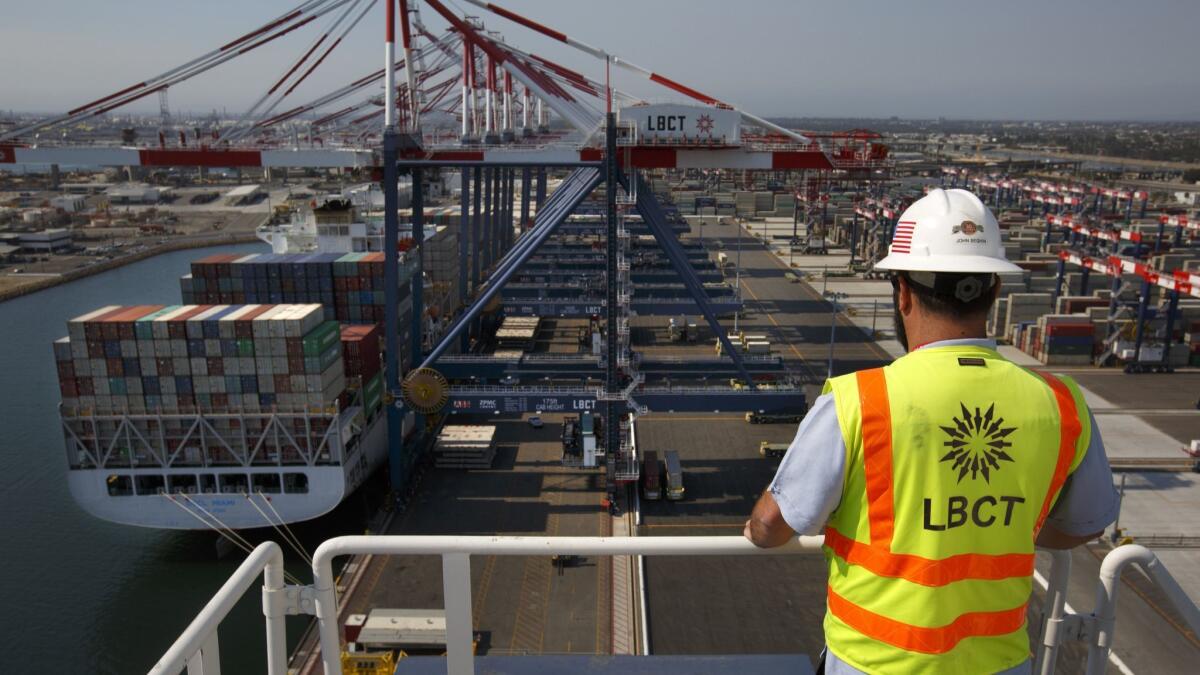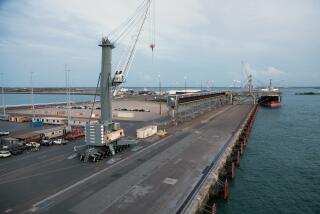U.S. reportedly raises objections to state-run Chinese company taking control of Long Beach port terminal

- Share via
U.S. regulators are reportedly raising objections that Cosco Shipping, a state-run Chinese company, could take control of a container terminal at the Port of Long Beach as part of its $6.3-billion acquisition of another company.
The concerns have been raised by the Committee on Foreign Investment in the United States, according to a report in the Wall Street Journal, which cited unnamed sources.
The secretive committee, which is chaired by the Treasury Department and focuses on national security, is reviewing Cosco’s planned acquisition of Orient Overseas International because that Hong Kong company has some assets in the U.S., a Cosco vice chairman has said.
The assets include a nearly fully automated terminal known as the Long Beach Container Terminal, for which Orient Overseas has a long-term lease.
According to the Wall Street Journal, Cosco executives have proposed to divest or carve out the Long Beach terminal, though it’s not clear that would be enough to satisfy concerns over the multibillion-dollar deal.
A spokesperson for Cosco did not return an email seeking comment. A Treasury spokesman declined to comment, noting that the department is prohibited by statute from publicly disclosing information filed with CFIUS.
“CFIUS reviews focus on national security concerns, and Treasury takes the role as chair of CFIUS very seriously, to ensure that CFIUS identifies and addresses any national security concerns posed by such foreign investment,” the spokesperson said.
The review follows President Trump’s March rejection of Singapore-based Broadcom’s planned purchase of Qualcomm after CFIUS raised concerns that the San Diego chipmaker would be weakened, leading China to gain an upper hand in 5G technology.
Follow me @khouriandrew on Twitter
More to Read
Inside the business of entertainment
The Wide Shot brings you news, analysis and insights on everything from streaming wars to production — and what it all means for the future.
You may occasionally receive promotional content from the Los Angeles Times.











